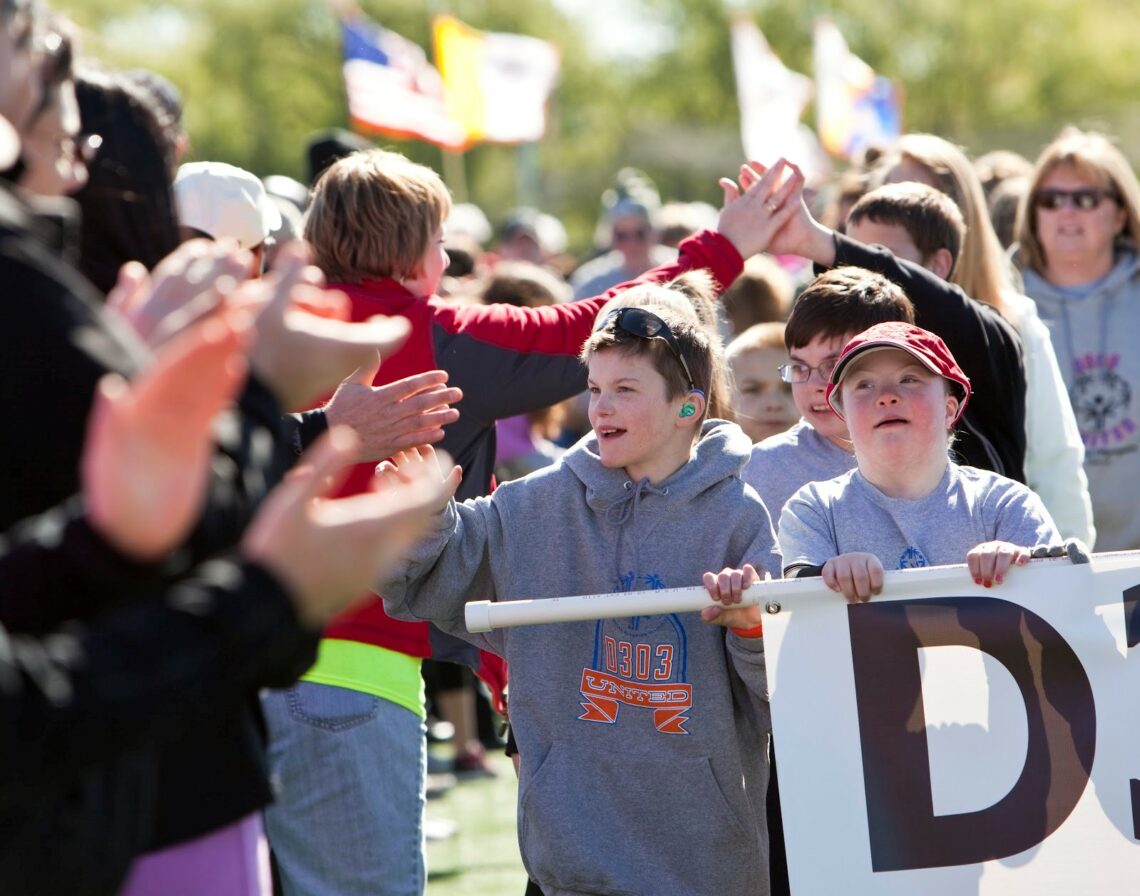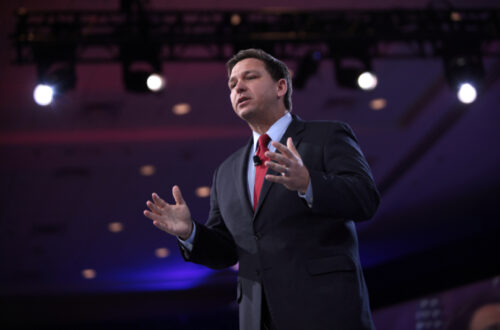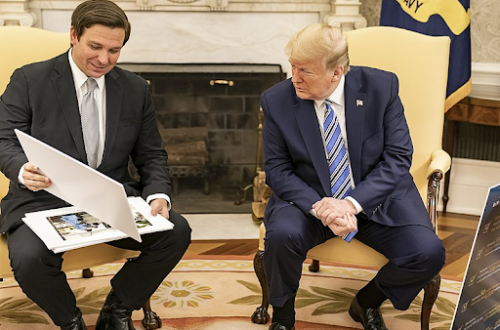I hear a warm commotion. The intercom voice is drowned by thundering claps and wailing whistles. Beside me, swimmers, skaters, and runners gather beside teammates and family members for pictures. I stumble through the play of olympic ribbons and jangling medals to congratulate my brother. I see him — standing across the room. I run up and grab him in a swooping hug, luckily he holds on to the bowling bowl in his hand, saving my toes.
The Special Olympics is the largest sporting event for individuals born with intellectual disabilities (ID). It is in service to over five million athletes worldwide in one-hundred and seventy four countries. It also requires more than one-million volunteers that help coordinate thousands of annual competitions. Unsurprisingly, the program is popular because it is emotional, physical, and riveting for players and spectators alike.
Over 51,000 Special Olympic athletes compete in Florida. The events include our favorites — gymnastics, powerlifting, cycling, volleyball, soccer, basketball, track and swim — all the ones we enjoy from the couch at home. Meanwhile, training and competition is happening year-wide.
Last month, fans, athletes, volunteers, and donors joined in national disapproval last March over a budget cut proposal by the Department of Education (DOE).
Education Secretary Betsy DeVos announced in late March that the 2020 fiscal budget would strip $17.8 million from Special Olympics funding — zeroing out all federal government assistance. The amount is comparable to what taxpayers spent in 2017 during four presidential trips to Mar-a-Lago: $13.6 million in one year, according to a U.S. government watchdog reported by Bloomberg News. And while the President has already visited Mar-a-Lago five times in 2019, the state of Florida was underfunded, only receiving $200,000 from the 2018 Special Olympics budget.
The consequences were abrupt. In our case, it was one phone call. An employee for Florida International University (FIU) took only two minutes to inform us that my brother was ineligible to attend Special Olympic events this year.
Public state-schools work in tandem with parents and serve as a liaison for the activities of the Special Olympics, therefore, without financial support from the federal education budget, many Florida school representatives delivered unsuspecting news to parents that morning. Sec. DeVos wrongly implied that the Special Olympics could be financially sustained through donations, saying, “[it] is well-supported by the philanthropic sector as well,” responding to criticism by Democrats from the Senate Appropriations subcommittee on education.
My family was not alone, thousands of children were dropped one day after the budget collapse. DeVos said it was one of the “difficult decisions” that Trump administration made, but Democratic Representatives challenged the Secretary, according to CNN.
Rep. Barbara Lee said she was “appalled” that Sec. DeVos zeroed out funding for disabled children again. Rep. Marc Pocan reiterated other examples from the 2020 fiscal budget proposal that target disabled children: “[26%] cuts that go to the special education grants to states… a $7.5 million cut to the National Technical Institute for the Deaf, a $13 million cut for Gallaudet University, a $5 million cut for a federal program for print books for blind students.”
The exchange went viral, and public outcry was infectious. Within days, President Trump would backtrack from the pandemic saying, “I heard about it this morning. I have overridden my people” (AP, 2019), which distanced the President from DeVos. Then DeVos backpedaled, saying in a statement, “I am pleased and grateful the President and I see eye-to-eye on this issue and that he has decided to fund our Special Olympics grant. This is funding I have fought for behind the scenes over the last several years,” according to the The Hill.
The budget was vetted and approved before reaching the public, therefore, the imperative question remains: who is held accountable?
As Sec. Devos enters her third year as the head of the DOE, policy decisions that have routinely targeted the education of children with ID are a concerning pattern. The first was on October 2017, when the DOE purged 72 guidance documents that outlined protected rights for students with disabilities. Sec. DeVos offered no explanations, only saying “they were outdated, unnecessary or ineffective.” (Washington Post, 2017). Although some rescinded guidelines amounted to no change, according to the Harvard Graduate School of Education, others were important legal protections under the Individuals with Disabilities Education Act and the Rehabilitation Act.
Another concern has been the sudden decline in investigations related to education-related discrimination. Substantiated complaints regarding “the individualized educational needs of students with disabilities has dropped from 45 percent to 34 percent,” according to ProPublica, between the Obama and Trump presidencies.
In 2018, Sec. DeVos also announced a two-year delay to the Obama-era rule of “Equity in IDEA.” The rule attempted to correct disproportionality in the identification of non-white children with disability. Significant racial and ethnic disparities were discovered in 2016, and the regulations guaranteed that a “uniform national standard [makes sure] that students from minority backgrounds are not overrepresented in special education.” The fear of minority parents was also that their children with special needs were at a higher risk of corporal punishment, detention, and suspension when displaying behavioral episodes, hyperactivity, or any other common emotional symptom present among individuals with ID.
In a 2019 piece by Christina Samuels, we are reminded, “Special Olympics was created at a time when people with intellectual disabilities were often stigmatized and isolated, so any positive visibility was celebrated.” A popular motto today is the celebration of ability, not disability. Florida represents 50,000 athletes, but Sherry Wheelock (CEO of Special Olympics of Florida) argues that increased funding allows the program to expand, and to include the over 300,000 people with ID living in the state. Just this year, it was announced that Orlando would host the Special Olympics USA Games in 2022, estimated to have a $61 million impact on Central Florida’s economy.
DeVos underestimated the meaning and popularity of the Special Olympics. Before capitulating to public outcry, she was urging top Senate Democrats not to “use disabled children in a twisted way for [their] political narrative” ahead of defending her defunding operation. But such a statement requires a suspension of disbelief, for DeVos seems as aloof to fact as she is to the needs of ID children and adults in this nation.
College of DuPage Hosts Special Olympics Spring Games 2017. (Unmodified Creative Commons photo by COD Newsroom. bit.ly/1ryPA8o)





